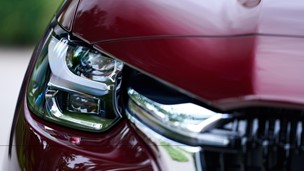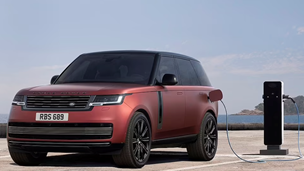This August, hundreds of millions of pounds’ worth of classic cars will find new owners via one of the world’s most prestigious automobile auctions at the Pebble Beach Concours d’Elegance in California.
Each year, the market for rare and vintage cars keeps on growing as demand increases and collectors spend ever larger amounts of money on the best exotic and luxury vehicles in the world.
The most expensive car ever sold at auction was a Ferrari 250 GTO which was believed to have been fetched £32 million in 2013, while the most expensive car sold at Pebble Beach was a 250 GT SWB that was auctioned for around £12 million.
So say you’ve got a piece of rare, classic metal sitting under the dust covers in your garage and you want to flog it. How do you sell your car for £32 million?
Start early

As with anything, the more preparation you put into it the better off you’ll do. Even before you start contacting auction houses, you should first consider whether or not your car is actually special or rare enough to be sold.
The majority of high-end auction houses, the sort that sell cars like 250 GTOs, go to great lengths to ensure that the cars they sell are prestigious and valuable, and many will often only take one example of a given model to ensure exclusivity.
It’s worth bearing in mind though that auction houses do take all kinds of cars, so just because you don’t have an ultra-rare racing Ferrari or a mint condition Jaguar E-Type doesn’t mean your car will be worth nothing. Sometimes it’s not the actual car itself that makes it valuable.
Do you have a story to tell?

Does your car have a unique story to tell? Perhaps it’s a unique one-off, it found itself in a crazy scenario or it was owned by somebody famous? Often these sorts of things can add appeal and therefore value to otherwise run-of-the-mill vehicles.
For example, perhaps you own something like Janis Joplin’s Porsche 356 or the Wolf of Wall Street's Ferrari Testarossa? If you do, both would be considerably more valuable than their standard counterparts. In fact, Joplin’s Porsche sold late last year at auction for £1.2m while a regular 356, while still valuable, would be worth around a fifth of that at most.
The more you know about your car and the more information you can provide to the auction house the better. It’s also worth contacting them early so they can photograph and film the car, as well as write material for the auction catalogue.
Find an auctioneer that suits you

It’s worthwhile bearing in mind that different auction houses cater to different kinds of buyers and therefore will stock different types of cars. In other words, to get the most possible money for your motor, you’re best choosing an auctioneer best suited to your vehicle.
Some, like Gooding & Co. specialise mostly in blue-chip collector cars like Ferraris and Bugattis, while others like Mecum will focus mostly on American muscle cars. Depending on where in the world you’re based, you might prefer Pebble Beach if you’re on the west coast of the US or RM Sotheby’s if you’re in southern England.
Also be aware that if you choose an auction house that’s in a different country to where you live, you’ll have to pay for transport. Some auctioneers will work out deals depending on the value of the car, and the earlier you contact them the better as they can promote it to potential buyers who might be willing to cover the costs of transportation themselves.
Make sure you’ve got all the paperwork

Any high-value car will be subject to extensive and intense scrutiny and evaluation, which will involve you having to send multiple copies of ownership records, service history and any other paperwork, down to records of whether it ever entered races.
Even the smallest details can help add to the car’s value and that extends to pictures, which should be sent to the auction house with your enquiry. Auctioneers will want to see every angle of the car, including places like the engine bay, boot and the minor detailing to make sure it’s in good nick.
Once the auctioneer determines that your car is in good condition and the paperwork is all present and correct, they’ll send out an examiner to personally evaluate the vehicle.
Double check your seller’s agreement

Every seller’s agreement is different, each is confidential and each one can also vary greatly depending on the value of the car so it’s always worth going over it with a fine-toothed comb.
A general rule of thumb is that cars valued at £180,000 or less are usually offered without reserve, come with a 10 per cent seller’s commission and usually include an entry fee that covers photographs, printed material and marketing.
Cars worth valued at £200,000 or more tend to have commission that’s negotiable depending on the car, but there’s also often a buyer’s premium that can add on as much as 10 per cent to the overall cost of the car as well as the separate seller’s commission.
Knowing exactly how the agreement will affect the overall price of the car at auction and how much you’ll have to give to the auctioneer at the end is vital to avoid any surprises at the end.



